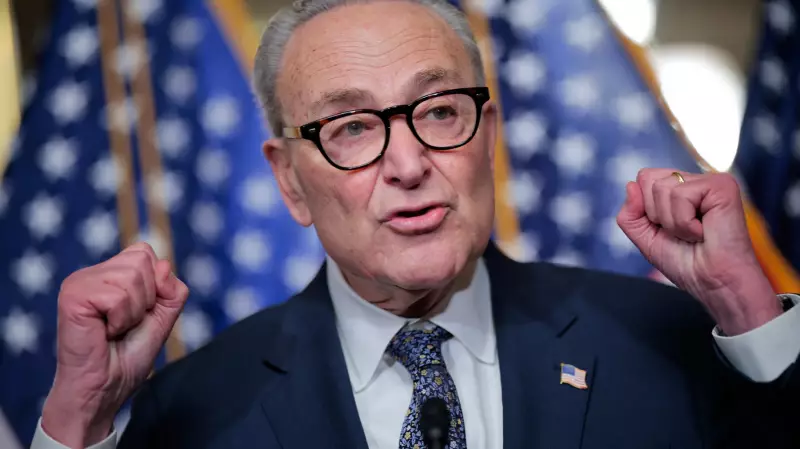
In a bold political maneuver, Senate Democrats are quietly positioning themselves to capitalize on the deepening fractures within Republican ranks over government funding. As the threat of another shutdown looms, Democratic leadership sees an opportunity to turn Republican infighting into electoral gold.
The Strategic Calculus
Democratic strategists recognize that extended government shutdowns historically damage the party perceived as responsible. With hardline conservatives pushing for spending cuts that moderate Republicans find unacceptable, Democrats are content to let the GOP's internal battle play out publicly.
"When Republicans fight among themselves over keeping the government open, it creates a narrative of chaos and incompetence that voters remember," explained a senior Democratic aide who requested anonymity.
Schumer's Careful Navigation
Senate Majority Leader Chuck Schumer faces the delicate task of appearing reasonable while allowing Republican divisions to deepen. His approach has been to offer clean funding bills while highlighting the Republican chaos across the aisle.
This strategy serves multiple purposes: it positions Democrats as the responsible governing party, exposes Republican fragmentation, and creates campaign-ready soundbites for vulnerable Republican senators facing reelection.
The Electoral Implications
The timing couldn't be more significant. With control of both chambers hanging in the balance, Democrats believe shutdown politics could sway moderate and independent voters who prioritize stable governance.
Vulnerable Republican senators in purple states face an impossible choice: anger their conservative base by supporting compromise bills or alienate moderate voters by backing shutdown threats.
Historical Precedents
Past government shutdowns have proven politically costly for the parties seen as instigators. The 2013 shutdown contributed to Republican approval rating drops, while the 2018-2019 shutdown damaged both parties but particularly hurt Republican standing.
Democratic operatives are studying these historical examples carefully, crafting messaging that links current Republican divisions to broader governance concerns.
Looking Ahead
As funding deadlines approach, expect Democrats to amplify their "party of governance" message while highlighting every Republican disagreement. The strategy represents a calculated bet that voters will punish the party they associate with dysfunction.
Whether this approach pays electoral dividends remains to be seen, but one thing is clear: Democrats see Republican disunity as their strongest asset in the coming political battles.





